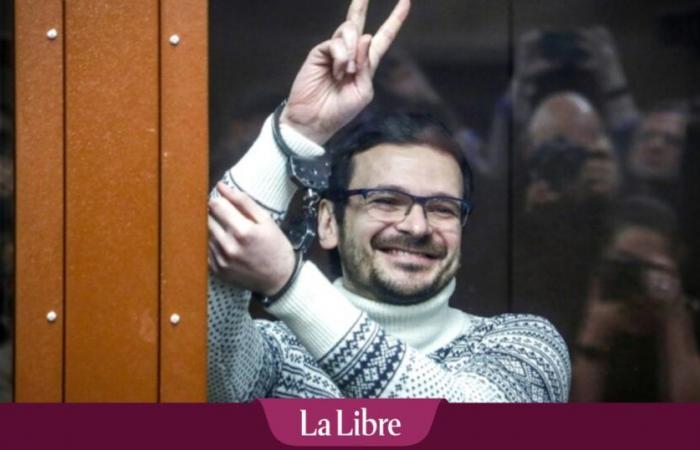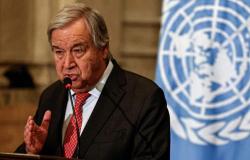In a context which favors the arrest of Americans and dual nationals present on Russian territory, the Russian Ministry of Foreign Affairs has claimed to have a list of 70 Russians that it wishes to have released, including spies and businessmen. who attempted to circumvent sanctions imposed by the United States. Citizens that the Kremlin intends to bring home, according to the famous adage erected as an ultimate rule by the security services: “We are not abandoning ours.”
In Russia, the wife of a political prisoner recounts her ordeal: “Artem will be lugged from town to town in terrible conditions” According to the NGO Memorial, in
Avoid playing the Kremlin’s game
This prospect of exchange quickly toured prisons and relatives of political prisoners, many of whom hope to be able to regain freedom before the end of their sentence.
Prisoner exchange: “mission accomplished” for Vladimir Putin
On August 1, a unique exchange since the fall of the USSR had already been organized by Russia and the United States. Twenty-six prisoners – Russian criminals and spies sometimes held in Europe; Americans detained in Moscow and Russian political prisoners – had found freedom. The approach surprised the opposition in the Kremlin, which was sometimes skeptical of the idea of expelling Russian citizens… from Russia. In short, to play the game of “bad citizens” and the theory of the “fifth column” on which Vladimir Putin relies to justify the repression of those who do not support his actions.
Prisoners who prefer to stay that way
Especially since according to the rule, the prisoners’ opinion is not requested; once registered on the common list, they do not have the choice of being released or not. This summer, this rule had exasperated the opponent Ilia Iachine, exchanged and now in exile in Germany. This political opponent of Putin had publicly stated that he regretted having been exchanged, knowing that his voice would no longer carry with the Russians once in Europe, that he would be in some way “demonetized”. Faced with prisoners made “dear” by Vladimir Putin, it was the “valor” of Ilia Iachine that allowed this exchange.
Russian justice at the heart of the repression: “How can he be a foreign agent when he has been in prison for almost two years?”
Sociologist Boris Kagarlitsky was sentenced to five years in prison after commenting positively on Ukraine’s 2022 Crimean Bridge attack online. After learning of the possibility of an exchange, he was quick to speak up. “I repeat, I do not wish to be included on a list. If I had wanted to emigrate, I would have done it myself, sooner […] If a foreign government agrees to trade me, I will sue them for kidnapping” he wrote from his prison. Yaroslav Shirshikov, a communicator sentenced to the same sentence for an online publication, also wrote a letter to affirm his refusal to be exchanged. He assumes, “If staying in my homeland to support it during these difficult times means that I stay in prison, I will stay there.”






